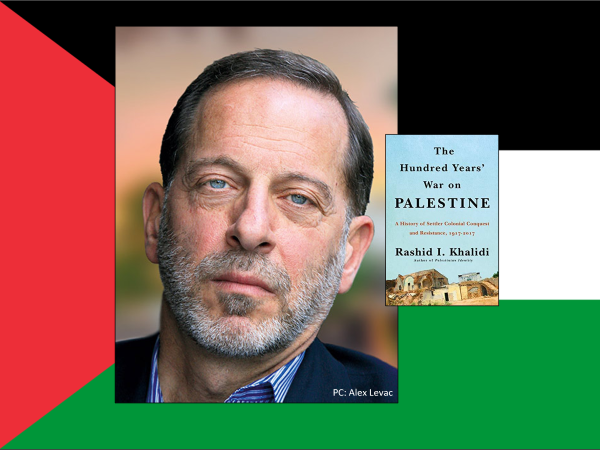It's difficult to imagine peace while war rages in Gaza and the West Bank.
I wanted to know why we're still fighting, why it's so complicated, and most importantly why we can't stop. So I went searching for answers.
Rashid Khalidi is a Palestinian-American historian, author, and professor on Middle East history and politics. He has taught at the American University of Beirut, the University of Chicago, and currently Columbia University.
Khalidi wrote The Hundred Years War on Palestine: A History of Settler Colonialism and Resistance, 1917–2017 to raise awareness about how we got here. A common understanding makes it more likely we can find a shared path forward.
The 3 most important things he wants us to know are:
- Arabs and Jews lived peacefully side-by-side before 1917 in land that is now Israel and the Occupied Territories. It's a long time ago but not impossible.
- Since then the Palestinians have lost significant rights (social, economic, and political) due to imperialism, colonialism, and nationalism. Today's conflict is not a fight between equals.
- This inequality is possible only because of the superpowers providing it, initially Britain, now the United States.
Why is any of this relevant to you and me?
Because it shows that peace is not only possible but was once normal. Because both sides need to be willing to give the other the rights they want for themselves. Because the United States has to stop being part of the problem and start being part of the solution.
Only then can peace be imagined. For Palestinians and Israelis. Both.
Until then, you can support Palestinian causes through small businesses like:
- Watan in Chicago providing community space for Palestinian heritage workshops & education,
- Palestinian Soap Cooperative in Berkeley sustaining jobs and wages for West Bank Palestinians, and
- Inaash in Beirut giving women in Lebanese refugee camps a chance at jobs and income.
Finally, all of this still means there is no place for anti-semitism anywhere in this world. More on that in a future post.
“Have you heard?” is our way of sharing another point of view on commonly held beliefs. Through this we hope to encourage curiosity, dialogue, and tolerance of diverse ideas.


